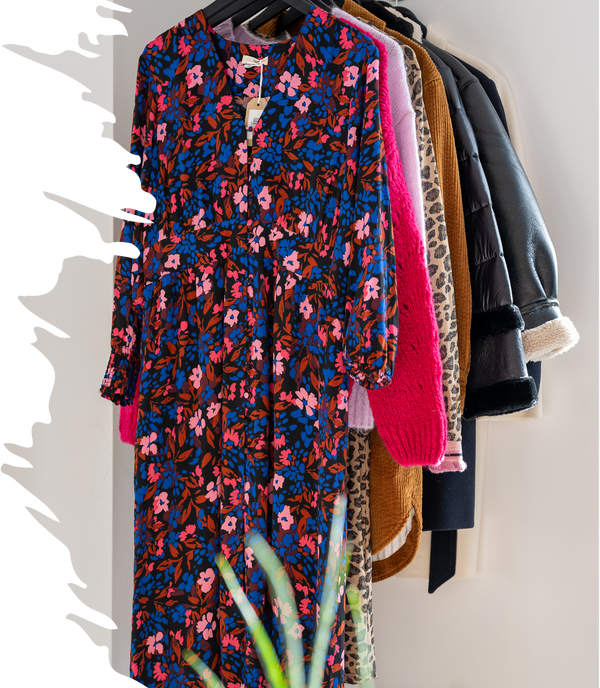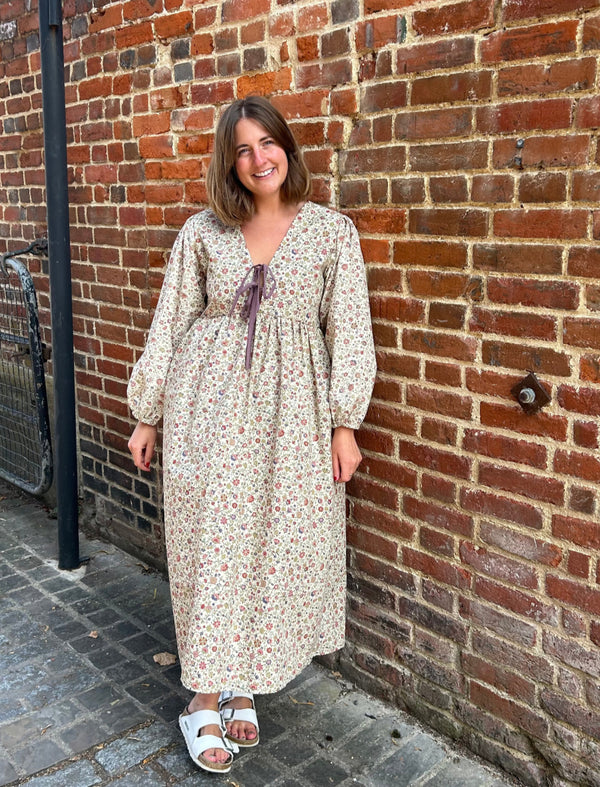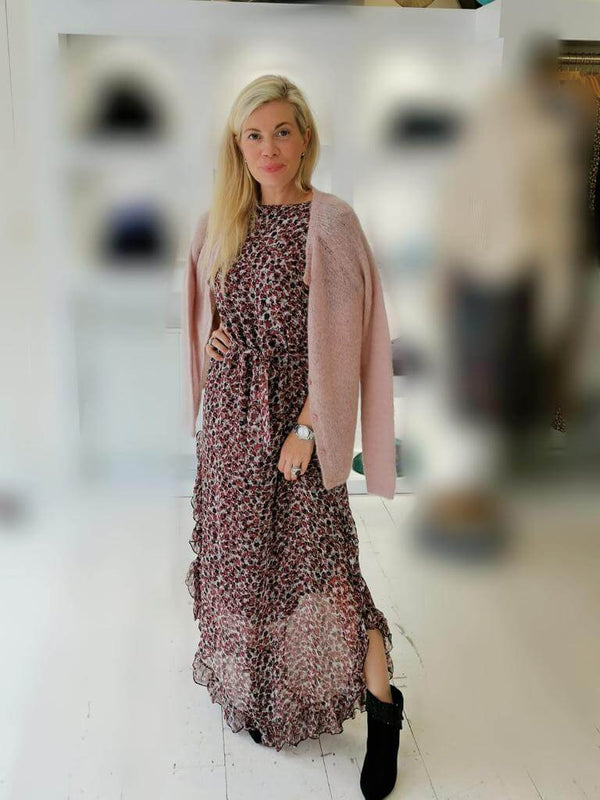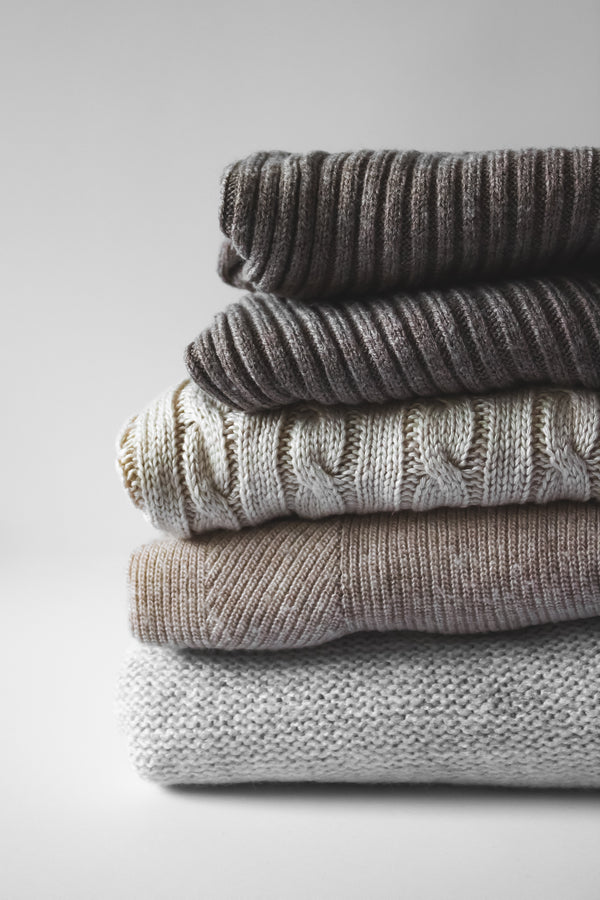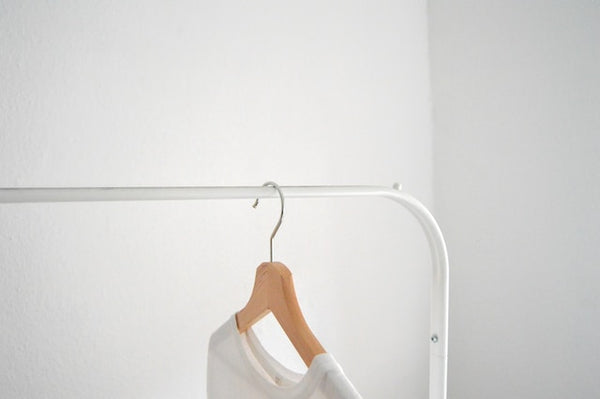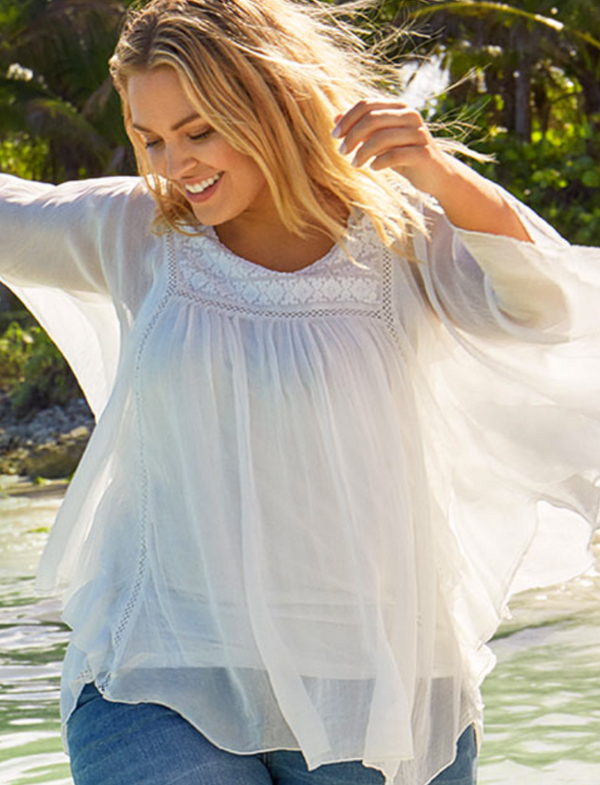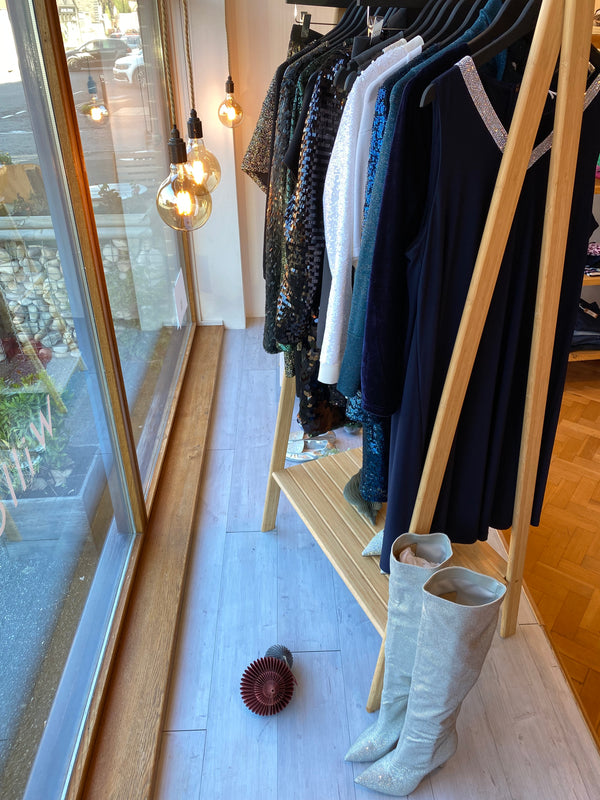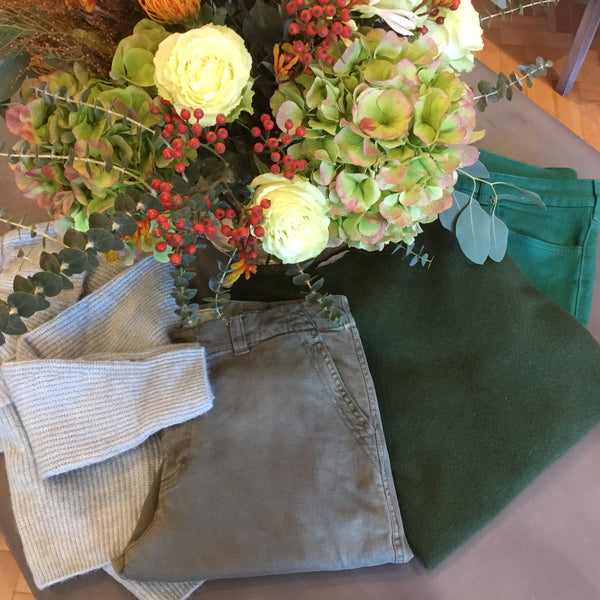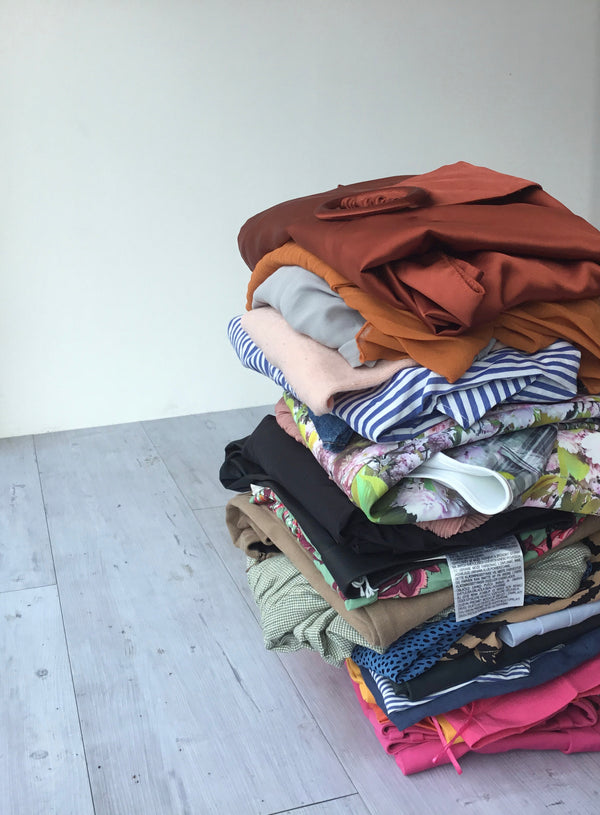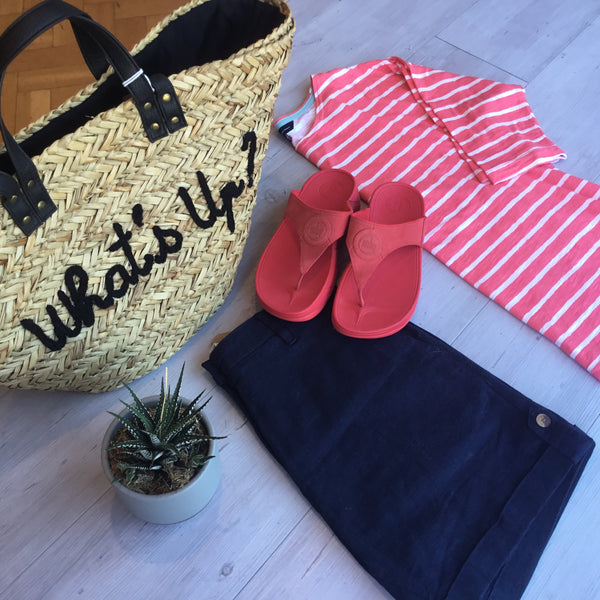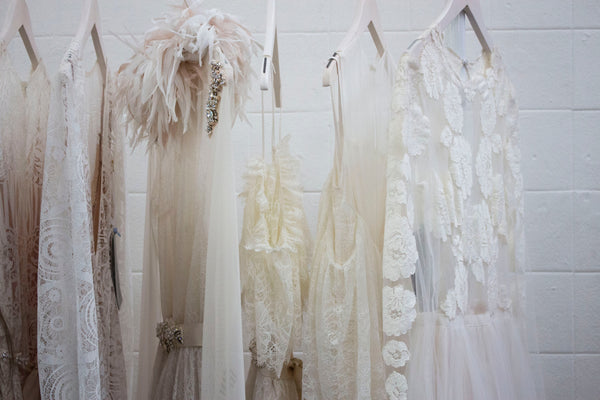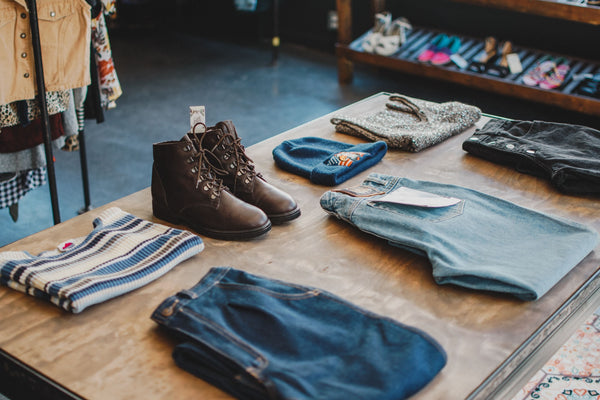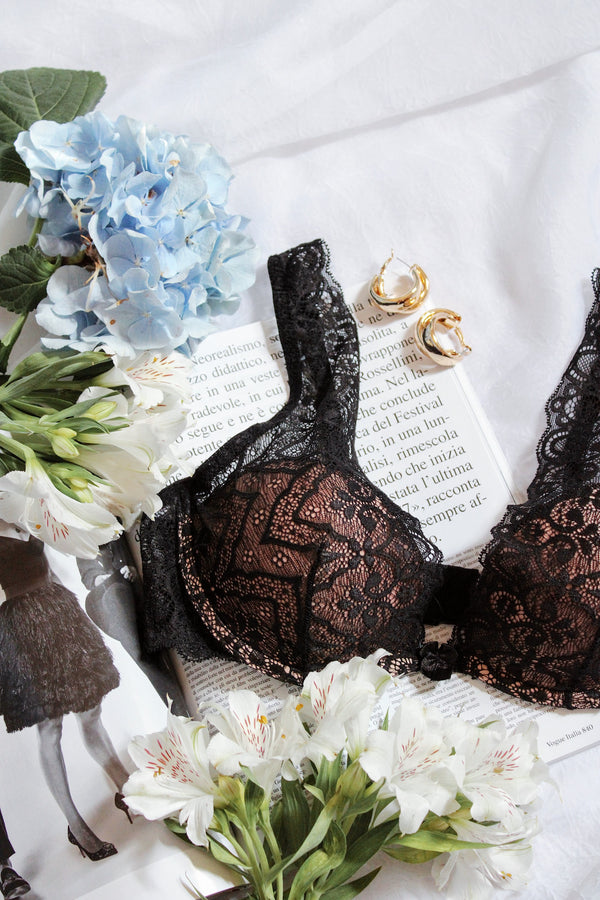Dry clean or not dry clean your preloved items? Willow & Eve asked the expert.

Here at Willow & Eve we ask that consignments are ‘shop ready’ or freshly laundered so we can put them straight onto the shop floor to sell.
We often have discussions with clients about care and composition labels and whether an item should be dry cleaned or hand washed.
Dave at Montague Street Cleaners, Worthing is who we always recommend at Willow & Eve. As an independent dry cleaner with years of experience we thought we'd ask him a few questions on the best way to care for your clothes.

How did you get into the business of dry cleaning?
Many, many years ago my father was a Hoffman presser in a clothes factory in the East End of London. Mum was a machinist in the same factory and that is how they met. When they got an opportunity to buy a house in Catford, South East London they took it, but dad became out of work.
A job for a presser came up in a local dry-cleaners and he took it.
Two of my uncles, my brother, myself, and four of my cousins followed him into the business.
How many years have you worked in dry cleaning?
I started pressing as soon as I was tall enough to reach the handles of the press – I was 14. So, a long time ago.
What advice do you give to customers all the time?
A couple of things really. Firstly, please give us time to do a good job; just like when you wash clothes at home we group them into a type of load. At some times of the year we may not be able to make up let’s say a white load for a few days, so same day service is impossible. Also please let us know if there are particular stains that you want us to remove. If we do not notice them before the garment is first cleaned the cleaning process may set them in.
What stain is the hardest to treat?
That is a difficult question because even though we use the best quality stain removers some of them can damage certain fabrics! But the most difficult for me in general are pollen from flowers and blood, because the pollen actually dyes fabrics and if blood is not treated quickly and correctly it can set in and become impossible to remove.
We see a lot of occasion wear that hasn't been laundered because it was worn for a few hours; what's the risk of not getting it cleaned?
Even if a garment is only worn for a few hours bacteria will be left behind on the garment, they can then multiply and sometimes start to smell. Also, some invisible stains like lemonade, or tonic water can go brown over a period of time if left on the garment.
Can you dry clean beaded & embellished items?
It used to be the case that we could not clean any beads or sequins, but some brands now use embellishments which can be cleaned in a normal process. Otherwise the garments need to be sent to one of our specialist cleaners which use a gentler cleaning fluid.
Clients sometimes bring in leather, suede or sheepskin jackets that haven’t been cleaned. Often, they are worried about damaging the items if they clean them. Can you get leather, suede or sheepskin dry cleaned?
When a real skin is prepared for use it is impregnated with an oil to keep it supple, this oil also gives a depth of colour to skins which are unsurfaced (like suede).
These garments need to be cleaned by a specialist using the same gentle fluids that are used for plastic sequins or beads. But the cleaning process removes some or all of the oil. This oil is then sprayed back onto the garment to give it back it's softness and colour.
The problem can be that when spraying on an oil the cleaner doesn't know exactly how much to spray on, and trying to spray a garment is not like dipping a whole skin. This means that some unsurfaced skins can change colour and texture when cleaned.
Surfaced leather and fur are usually fine, also light colour suede and sheepskin are fine, the only real issue seems to be with very deep coloured unsurfaced skin, like a navy blue or black suede. So, depending on their condition when brought in to me, I will sometimes recommend against cleaning.
Is there anything you can't clean?
The things that I have to turn away are generally stuffed items like cushions where the foam can’t be removed or soft toys.
What's the most dramatic result you've had?
I had a customer who worked at WADARs, she was a real animal lover. When she got married, she wore a multi-layered traditional wedding dress, and rode a horse to the ceremony. After the ceremony she decided that she should go muck out the horse still wearing her dress.
When the dress came to me it was completely black up to around 18 inches from the ground. I thought we had no hope.
Luckily the dress was all polyester, which stains don’t really get ingrained into. I took it to our specialist cleaners and we gave it a delicate pre-wash and then long gentle wash.
It came out like brand new. I was as excited as the bride.
What's the worst item you've seen?
I have the contract for cleaning the costumes for Guildford School of Acting and they once performed a play with about 6 characters which was acted out entirely in a pond. That was probably the worst! The 6 costumes turned up soaking wet in a black plastic bag about a week after the show!!
We've had items in that have been dry cleaned, (not by you) but still have marks or stains on, why do you think that is?
Not all stains are removed by dry-cleaning alone, so the stains are either treated before cleaning, or spot treated after cleaning. It’s possible that they have been missed by the cleaner while pressing the garment after cleaning, or it may be that they do not have time to treat and re-clean the garment because the customer needs it back.
Also, as I mentioned, some of our spotting chemicals can damage certain materials, so although it’s possible to remove a stain from some materials it may not be possible to remove it from fine silk for example.
Lastly there is the possibility that the cleaner is not motivated to do the job (this is more common in a large chain)
Can you handwash items if the care label says Dry Clean only?
The answer to that question is – sometimes. Some manufacturers now put labels which show the symbols for “do not wash” and “ do not dry-clean” and then print the wording “Dry-clean only” this usually means that the item needs to be washed, but by a professional cleaner.
Have you any secret tips that you can share with our readers?
The advice which I give most is to treat stained garments as soon as possible.
Also, when cleaning at home don’t be fooled into thinking that a quick wash in a washing machine is a gentle wash. The quick wash programme will try to beat the stains out of your washing as quickly as possible. It is much safer, and costs less, to use a hand wash or gentle cycle because all that beating of the clothes uses a lot of energy.
Should you keep dry cleaned clothes in their poly bags in your wardrobe?
I have heard lots of arguments for and against this but all I can say is that I always do.
Best anecdote from all your years in the business
I know this will sound like a sketch from an old comedy show, but when I was about 15, I was working in my dad’s shop when an attractive young woman walked in and asked him how quickly he could clean a dress.
He told her that he was just about to put a load into the machine so it would take about 40 minutes.
She just unzipped her dress, took it off and handed it over and said “That’s great, I’ll wait”
She stood there for 40 minutes in the shop wearing her bra and knickers.
As a teenage boy I was dumbstruck, but the funniest thing was to watch men walk past and catch a glimpse of her then immediately walk back the other way for a good look, and finally back past to wherever they were going.

Anything else you think is interesting...
Most people don’t really know what dry-cleaning is.
It is a cleaning process in a machine which is much like a large washing machine and tumble drier combined, but the process uses a solvent (like white spirit but non-flammable) rather than water.
It is believed that modern dry-cleaning was invented in France around 200 years ago. The story is that a maid knocked over a lamp which spilled lamp oil onto a tablecloth. When it dried the owner noticed that a long term stain had been removed, and the idea of cleaning without water was born.
185 Montague Street, Worthing BN11 3DA
01903207022
Photo by Vanessa Rauer on Unsplash



